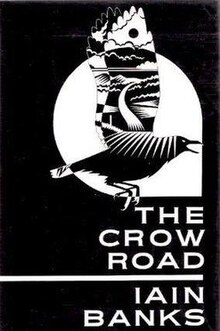
Iain Banks was a Scottish author, writing mainstream fiction as Iain Banks and science fiction as Iain M. Banks, adding the initial of his adopted middle name Menzies. After the success of The Wasp Factory (1984), he began to write full time. His first science fiction book, Consider Phlebas, appeared in 1987, marking the start of the Culture series. His books have been adapted for theatre, radio, and television. In 2008, The Times named Banks in their list of "The 50 greatest British writers since 1945".

The Wasp Factory is the first novel by Scottish writer Iain Banks, published in 1984. Before the publication of The Wasp Factory, Banks had written several science fiction novels that had not been accepted for publication. Banks decided to try a more mainstream novel in the hopes that it would be more readily accepted, and wrote about a psychopathic teenager living on a remote Scottish island. According to Banks, this allowed him to treat the story as something resembling science fiction – the island could be envisaged as a planet, and Frank, the protagonist, almost as an alien. Following the success of The Wasp Factory, Banks began to write full-time.
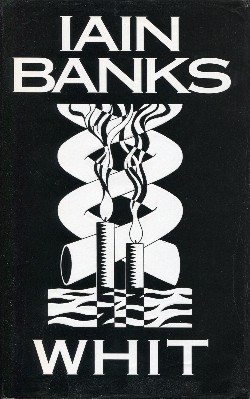
Whit, or, Isis amongst the unsaved is a novel by the Scottish writer Iain Banks, published in 1995. Isis Whit, a young but important member of a small, quirky cult in Scotland, narrates. The community suspects that Isis' cousin Morag is in danger, and sends Isis out to help.

The State of the Art is a short story collection by Scottish writer Iain M. Banks, first published in 1991. The collection includes some stories originally published under his other byline "Iain Banks", as well as the title novella and others set in Banks's Culture fictional universe.
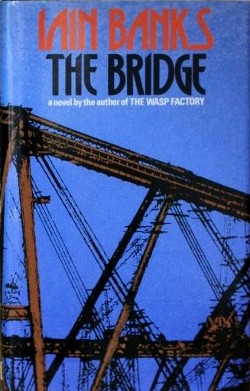
The Bridge is a novel by Scottish author Iain Banks. It was published in 1986. The book switches between three protagonists, John Orr, Alex, and the Barbarian. It is an unconventional love story.

Rob Roy (1817) is a historical novel by Walter Scott, one of the Waverley novels. It is probably set in 1715, the year of the second Jacobite uprising, and the social and economic background to that event are an important element in the novel, though it is not treated directly. The depiction of Rob Roy bears little relation to the historical figure: 'there are two Rob Roys. One lived and breathed. The other is a good story, a lively tale set in the past. Both may be accepted as "valid", but they serve different needs and interests.'
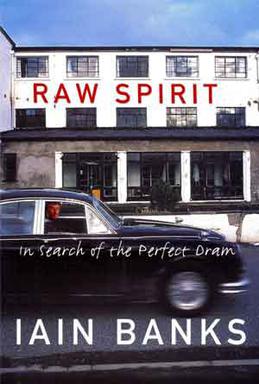
Raw Spirit: In Search of the Perfect Dram is a nonfiction book by Iain Banks, first published in 2003. It is his only nonfiction book.
Prentice is both a given name and a surname. Notable people with the name include:
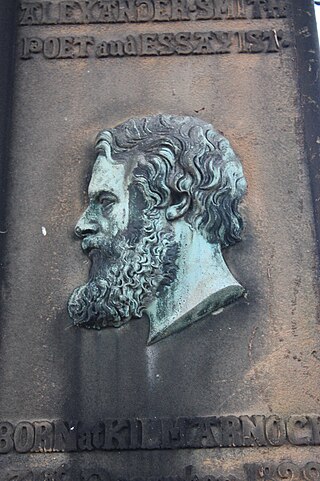
Alexander Smith was a Scottish poet, labelled as one of the Spasmodic School, and essayist.

Iain Crichton Smith, was a Scottish poet and novelist, who wrote in both English and Gaelic. He was born in Glasgow, but moved to the Isle of Lewis at the age of two, where he and his two brothers were brought up by their widowed mother in the small crofting town of Bayble, which also produced Derick Thomson. Educated at the University of Aberdeen, Crichton Smith took a degree in English, and after serving in the National Service Army Education Corps, went on to become a teacher. He taught in Clydebank, Dumbarton and Oban from 1952, retiring to become a full-time writer in 1977, although he already had many novels and poems published.

Complicity is a 2000 film based on the 1993 novel Complicity by Iain Banks. The screenplay was written by Bryan Elsley, and directed by Gavin Millar. Both had previously adapted Banks's The Crow Road into a TV serial. The film marked the debut of Richard Madden.
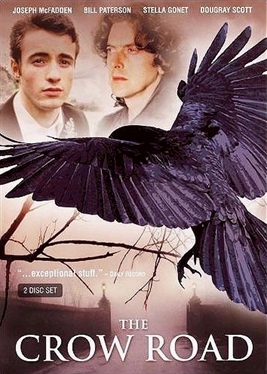
The Crow Road is a four-part television miniseries by BBC Scotland in 1996, based faithfully on the 1992 novel of the same name by Scottish novelist Iain Banks. It was directed by Gavin Millar.
Allan Johnstone Massie is a Scottish journalist, columnist, sports writer and novelist. He is a Fellow of the Royal Society of Literature. He has lived in the Scottish Borders for the last 25 years, and now lives in Selkirk.

The Steep Approach to Garbadale is a novel by the Scottish writer Iain Banks, published in 2007. The novel had at least two working titles, Matter and Empire!
Bryan Elsley is a Scottish television writer, best known for the co-creation of E4 teen drama Skins with his son, Jamie Brittain. Other television dramas include Rose and Maloney, The Young Person's Guide to Becoming a Rock Star, The Crow Road, Dates, and Kiss Me First.
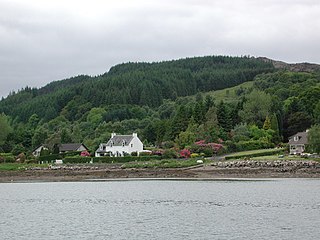
Lochgair is a village in Argyll and Bute, Scotland. It lies on the coast of Loch Gair, a small inlet on the west of Loch Fyne. The A83 road runs through the village.

Hamish Macbeth is a Scottish mystery comedy-drama television series produced by BBC Scotland that aired from 26 March 1995 to 4 May 1997. It is loosely based on a series of mystery novels by M. C. Beaton. The series concerns a local police officer, Constable Hamish Macbeth, in the fictitious town of Lochdubh on the west coast of Scotland. The title character was played by Robert Carlyle. It consisted of three series, with the first two series containing six episodes and the third containing eight.
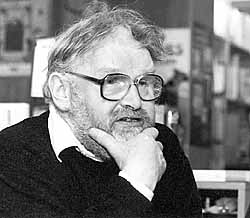
Alasdair James Gray was a Scottish writer and artist. His first novel, Lanark (1981), is seen as a landmark of Scottish fiction. He published novels, short stories, plays, poetry and translations, and wrote on politics and the history of English and Scots literature. His works of fiction combine realism, fantasy, and science fiction with the use of his own typography and illustrations, and won several awards.

The Hydrogen Sonata is a science fiction novel by Scottish author Iain M. Banks, set in his techno-utopian Culture universe. The hardcover edition was released on 4 October 2012 in the United Kingdom, and on 9 October in the United States. The book's release marked 25 years since the publication of Banks' first Culture novel. A paperback edition of the book was released on 5 September 2013 in the United Kingdom, and on 10 September in the United States. The Hydrogen Sonata was Banks' last science fiction novel, as he died of gall bladder cancer in June 2013.
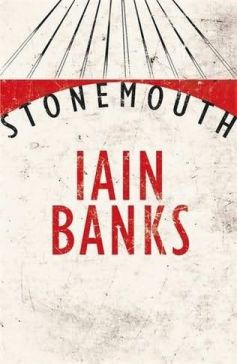
Stonemouth is a 2012 novel by Scottish author Iain Banks. The novel was published on 5 April 2012 by Little, Brown and Company and follows a man returning to a small seaport town after being forced to flee five years earlier. The Irish Times picked the book as one of their "Books to Read in 2012".
